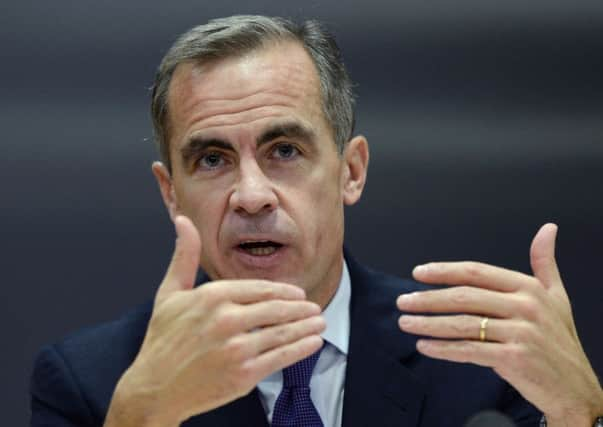Low inflation prompts deflation fears


Bank of England governor Mark Carney has admitted there is a slightly increased risk of the value of the pound falling as the latest official figures inflation fell from one to 0.5 per cent in the 12 months up to December.
The fall was linked to a reduction in petrol and energy prices, but the drop means Mr Carney will now have to write to Chancellor George Osborne setting out why the rate is more than 1 per cent out from the official 2 per cent target, and what he will do to prevent a dangerous further significant drop in rates.
Advertisement
Hide AdAdvertisement
Hide AdEconomists said that the continued plunge in the oil price meant it was likely to fall further and that brief period of negative inflation was “not entirely out of the question”.
Paul Hollingsworth of consultancy Capital Economics said inflation was likely to fall further to 0.2% and a brief period of deflation was “not entirely out of the question”.
He said the further fall in oil prices since the period covered by the latest figures “should mean that the UK comes within a whisker of deflation soon”.
Mr Hollingsworth said Mr Carney’s letter to the Chancellor “will presumably highlight the fact that it is temporary factors which are keeping inflation down, not underlying weakness in the economy”.
Advertisement
Hide AdAdvertisement
Hide AdHe added: “We doubt that inflation has reached its low point yet though.
“Indeed, the further 20% or so fall in oil prices since December’s average level looks set to push CPI inflation to a record low of around 0.2% over next couple of months.
“And given uncertainties surrounding how quickly and to what extent lower oil prices will cause price rises for other goods to moderate, a brief period of deflation is not entirely out of the question.”
Mr Carney last night insisted the inflation rate, the lowest since the equivalent in 2000, and a was good news for businesses, but acknowledged that there was a risk of the economy heading towards deflation.
Advertisement
Hide AdAdvertisement
Hide AdMr Carney said: “By and large these figures are good news in the short term for British households.
“It’s largely caused by lower petrol prices and lower food prices. That means your pound is going to stretch farther - lower prices at the pump and in the shops.
“The issue is to make sure that this doesn’t become more generalised and that we don’t see low and falling prices more generally, because a little bit of inflation is good for the economy, it greases the wheels of the economy.”
Asked whether the balance of risks had shifted towards deflation, he said conditions were “a little softer.”